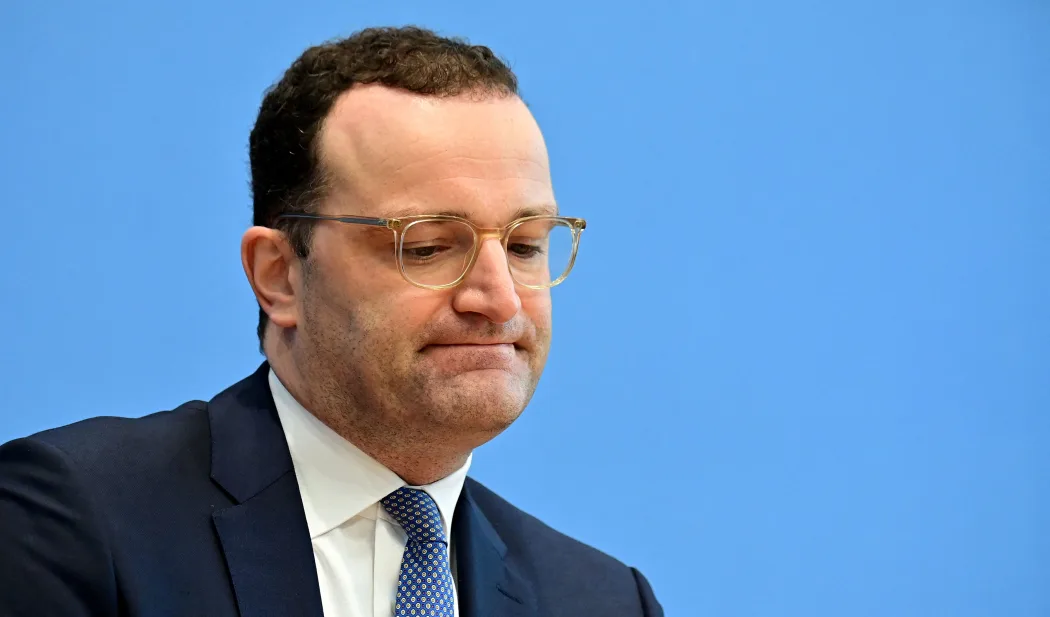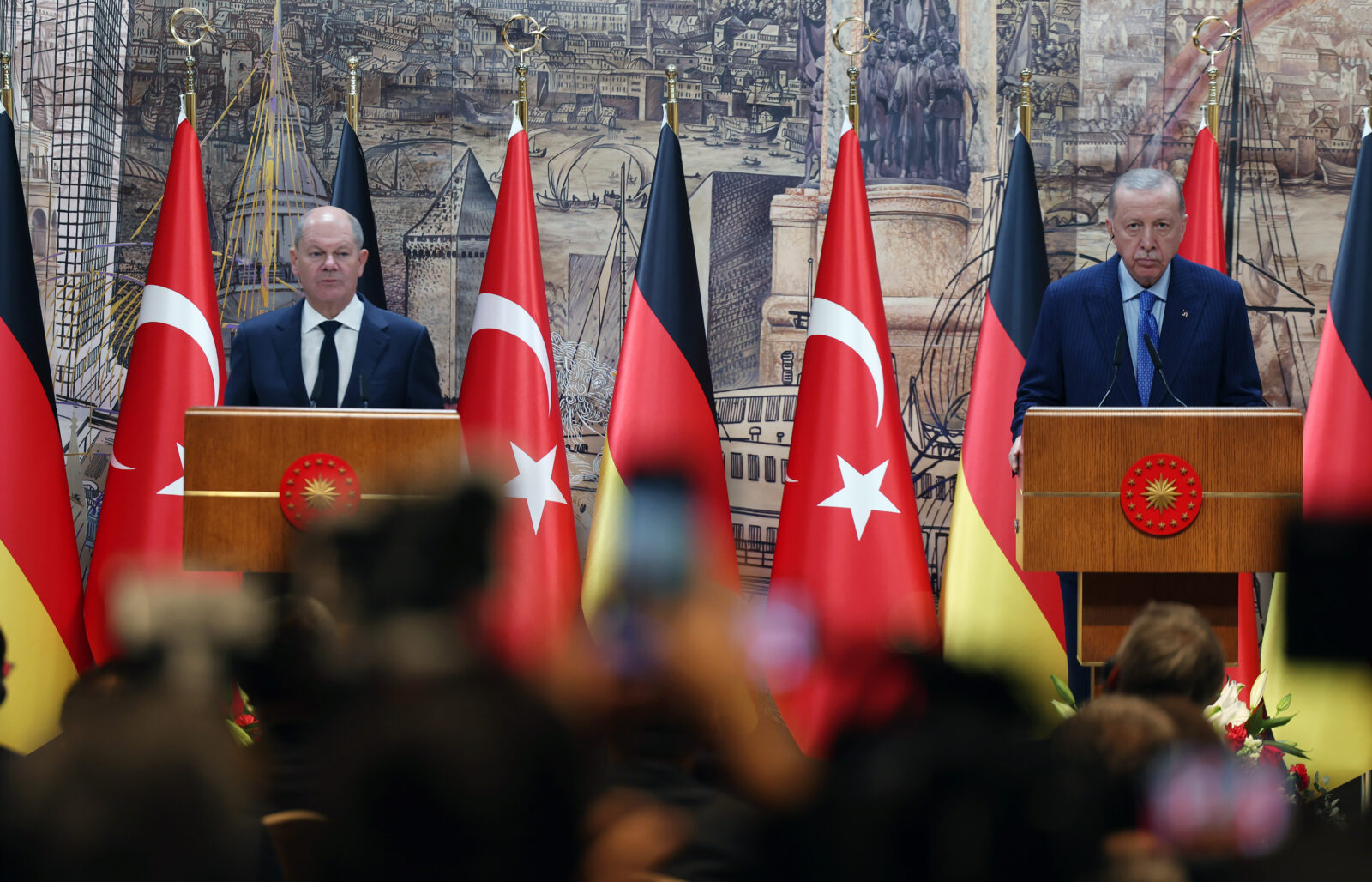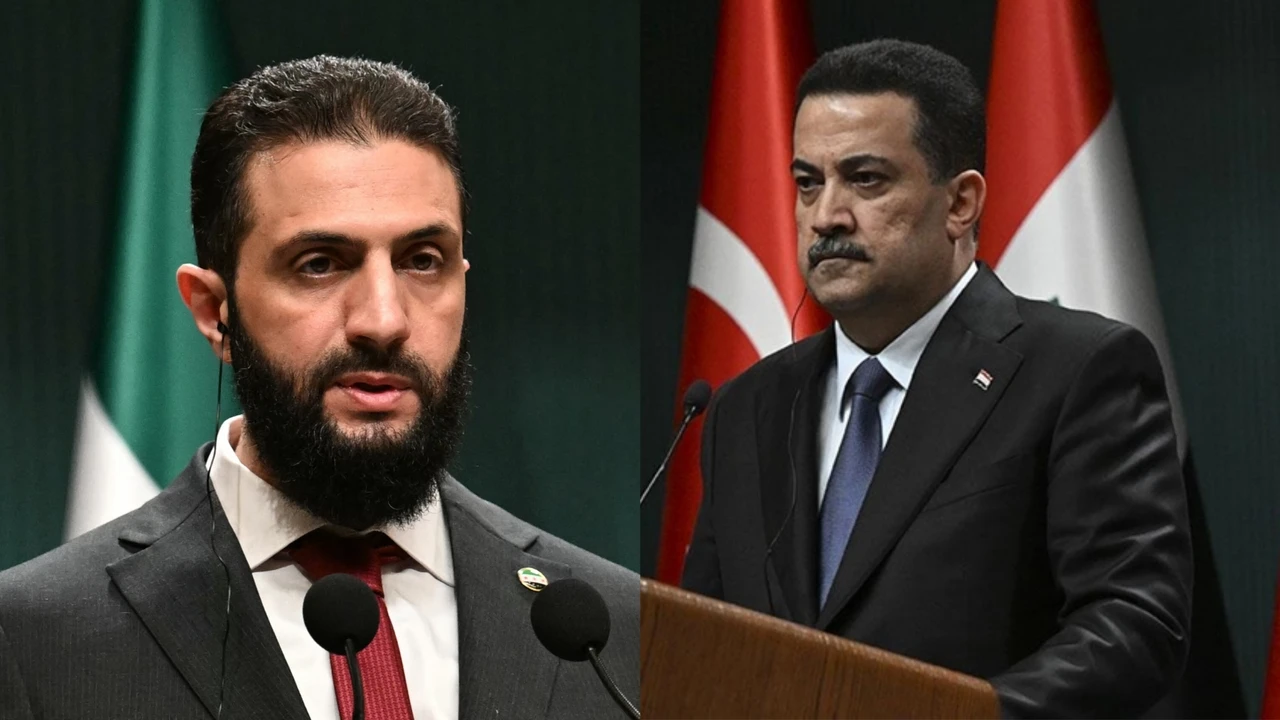Germany proposes $1,057 incentive for Syrian refugees to return home
 Members of the Syrian community wave Syrian flags and light flares on December 8, 2024 in Berlin, Germany, and celebrate the end of Syrian dictator Bashar al-Assad's rule after rebel fighters took control of the Syrian capital Damascus overnight. (AFP Photo)
Members of the Syrian community wave Syrian flags and light flares on December 8, 2024 in Berlin, Germany, and celebrate the end of Syrian dictator Bashar al-Assad's rule after rebel fighters took control of the Syrian capital Damascus overnight. (AFP Photo)
As discussions on the future of Syrian refugees in Europe intensify, Germany’s Christian Democratic Union (CDU) party has proposed a financial incentive for Syrians living in Germany to return to their home country.
Following the fall of Bashar al-Assad’s regime, the CDU suggested refugees receive €1000 ($1,057) each, as well as chartered flights, to facilitate their voluntary repatriation.
Jens Spahn advocates for government support for voluntary returnees
Jens Spahn, the CDU’s deputy parliamentary group leader, voiced support for this initiative, stressing that Germany should organize flights to Syria and offer financial support to those wishing to return.
“If the government were to offer charter flights to Syria and €1000 for each person wishing to return, this could be a first step,” Spahn explained.

Proposed steps for coordinated repatriation
In addition to the financial offer, Spahn called for a broader international conference in 2025 involving Germany, Austria, Türkiye and Jordan, aimed at addressing refugee repatriation and Syria’s post-conflict reconstruction.
He noted that repatriation should be considered when conditions in Syria normalize and stable perspectives emerge.
Debate on refugee protection status
The suggestion has sparked debate, particularly regarding the status of refugees who fled Assad’s regime. Alexander Throm, CDU’s domestic policy spokesperson, argued that the fall of Assad should lead to a reassessment of the protection status for Syrian refugees.
Throm stressed that temporary asylum status must be reviewed now that the regime has changed.

Jürgen Hardt calls for urgent dialogue with Türkiye
Jürgen Hardt, the CDU’s foreign policy expert, also weighed in, calling for swift talks between German Chancellor Olaf Scholz and Turkish President Recep Tayyip Erdogan.
Hardt pointed out that no significant migration movement has been observed from opposition-controlled areas of Syria, suggesting that this could be an opportunity for Germany and the EU to actively support the return of refugees to Syria.
Assad sits next to Lukashenko in the Kremlin in Moscow, the despots of the world around Putin. In Syria, there is a chance for a new beginning.
The EU and Germany must support this: send clear signals to those in power that there is support for the rule of law and democracy.
Jurgen Hardt

Migration expert Gerald Knaus sees historical opportunity
Migration expert Gerald Knaus, who played a key role in the 2016 EU-Türkiye refugee deal, referred to the fall of Assad as a potential “historic turning point” for Syria and the wider migration situation.
Knaus suggested that if stability is restored in Syria, it could lead to a decline in asylum applications from Syrians in Europe, particularly in Germany.
Proposal for a contact group on Syria
Knaus also urged the German government to establish a contact group on Syria, involving key regional players, including Türkiye and Jordan, as well as European countries and the newly formed Syrian government.
This group would work on a strategy for Syria’s stabilization and the return of refugees.





The political, social implications of refugee return
Experts warn that a coordinated approach to refugee return, backed by international support, could significantly affect domestic politics in Germany, particularly if the number of asylum applications from Syria decreases by 2025.
Such a scenario could diminish the influence of far-right political groups, such as the Alternative for Germany (AfD), who have been critical of refugee policies.



